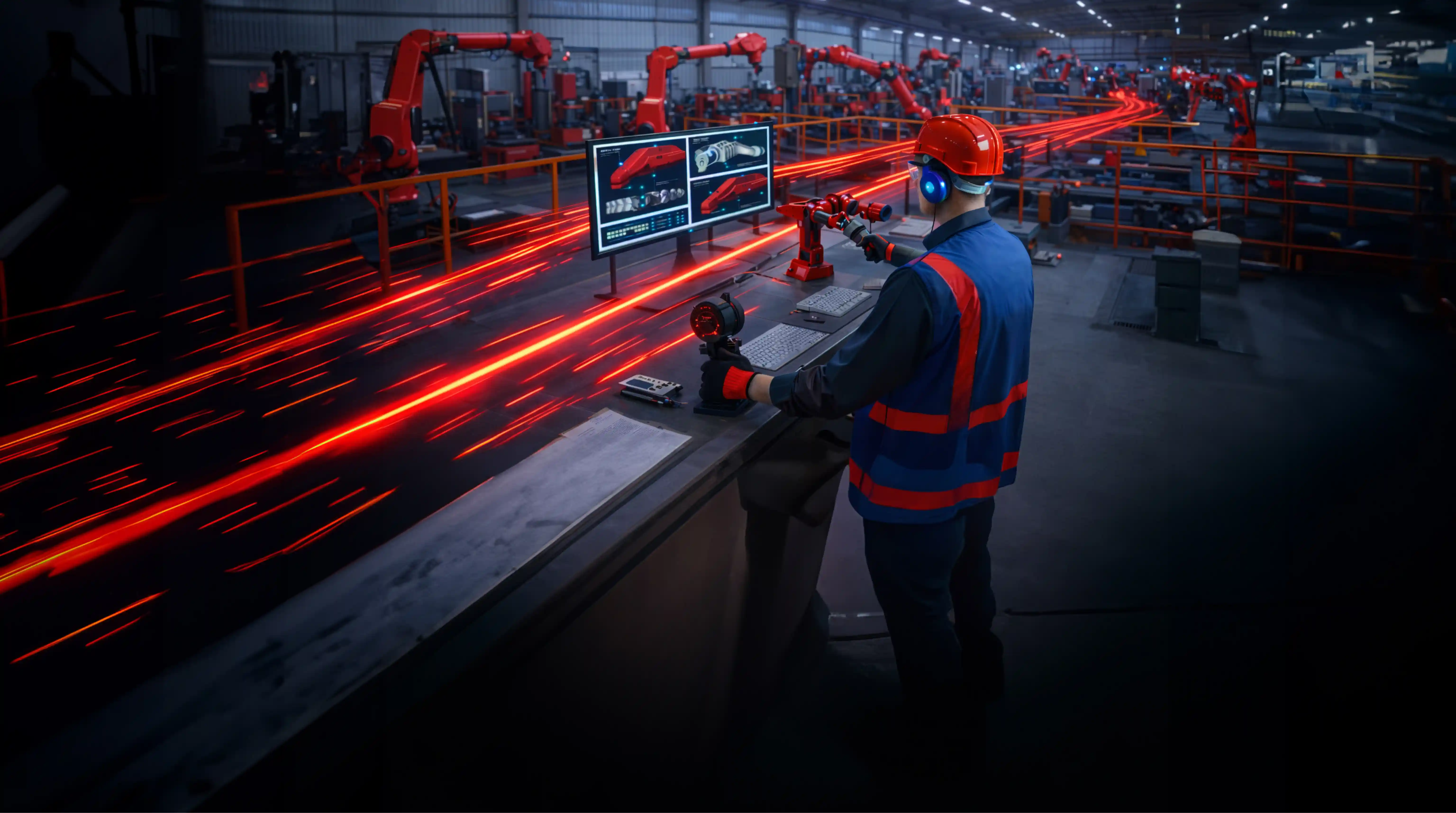Raw Materials, Real Insights: Cloud ERP for Manufacturing Intelligence
August 28, 2025
Introduction
Manufacturers are under tremendous pressure to innovate, optimize manufacturing processes, and scale effectively in today’s rapidly changing industrial sector. In the current landscape, businesses require scalable and versatile ERP solutions to maintain a competitive edge even if they work in process or discrete manufacturing.
Conventionally, businesses have used on-premises ERP software to administer their manufacturing, inventory, and supply chains. Although these systems were useful in the past, they had a significant IT overhead, frequently had integration problems, and lacked real-time functionality.
The upcoming software-as-a-service (SaaS) models and cloud-based ERP solutions have significantly brought a change to this ecosystem. Customer relationship management (CRM), product lifecycle management (PLM) and manufacturing execution systems (MES) can all be seamlessly integrated with the cloud-based and responsive software solutions offered by today’s manufacturing ERP systems.
The organizations can improve manufacturing data collection, gain immediate insight into shop floor activities, and arrive at data-driven decisions that increase operational agility, enhance customer satisfaction, and promote innovation throughout the entire company through the use of these leading manufacturing ERP systems.
This blog aims to reach out to individuals working as plant managers, operations directors, CIOs, CTOs, and other decision-makers who are looking to update their outdated on-premise ERP systems and enhance vital manufacturing procedures. You will uncover how fundamental industrial operations like production planning, supply chain management, inventory, and finance management are connected via manufacturing ERP software and cloud-based ERP systems, which form the digital foundation of industry 4.0.
Key Capabilities of Cloud ERP
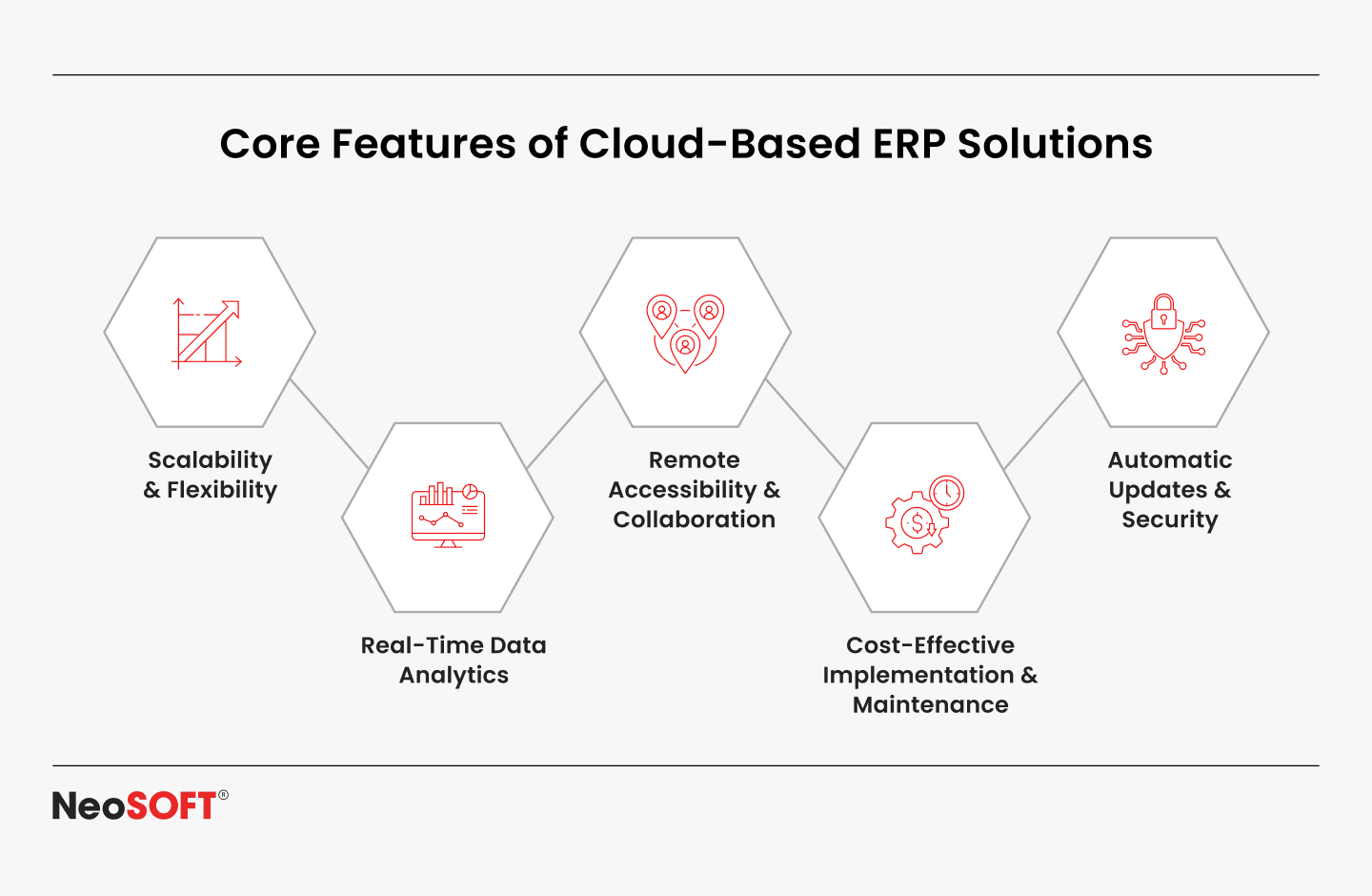
Production operations are being revolutionized by cloud ERP, which acts as a scalable and adaptable substitute for typical on-premise ERP systems. These platforms, which operate on scalable, software hosted in the cloud, let manufacturers connect to, digitize, and optimize every stage of the manufacturing lifecycle from raw materials to consumer delivery.
What sets cloud-based ERP apart?
- Real-Time Data Access: Supply chain activities, sales pipelines, production schedules, inventory levels, and other aspects of manufacturing processes are all visible in real time with cloud ERP systems. This makes it possible to estimate demand accurately, make decisions more quickly, and improve responsiveness throughout your company.
- Scalability & Flexibility: Cloud ERP software conforms to your demands, whether you’re handling massive operations process manufacturing environments or are a small batch maker. These systems expand easily across departments and geographical locations for both standalone and process manufacturing as well as custom manufacturing.
- Mobile & Remote Accessibility: Regardless on the production floor, in the storage facility, or at headquarters, users may safely receive dashboards, reports, and real-time data at any time with contemporary manufacturing ERP software. Better control over crucial industrial processes and quicker problem solving are made possible by this mobility.
- Powerful Integration Capabilities: Customer relationship management, manufacturing execution systems, project management, product lifecycle management and financial management are just a few of the important enterprise apps that can be connected to a cloud-based ERP system. This breaks down walls and facilitates real-time collaboration by integrating key corporate operations into just one digital thread.
- Automated & Continuous Updates: Cloud-based solutions provide regular, automatic upgrades that guarantee access to the newest attributes, regulatory tools, and security fixes without interfering with business operations, in contrast to legacy on-premise ERP systems. Broad, expensive upgrading cycles are over.
- Support for End-to-End Operations: These platforms support all key functions inventory management, materials management, warehouse management, accounting processes, quality control, sales management, and even human resources all within one integrated solution.
In light of these features, cloud ERP is one of the best solutions for modernizing manufacturing processes. To remain competitive in a continuously changing industrial manufacturing sector, they help firms manage intricate supply chain networks, streamline production processes, assure compliance, and obtain comprehensive business intelligence.
Manufacturing businesses may increase customer satisfaction, expedite manufacturing data gathering, and build a connected, future-ready corporation by switching from antiquated on-premises ERP to an adaptable, highly intelligent, and cloud-based enterprise resource planning solution.
Key Benefits for Modern Manufacturers
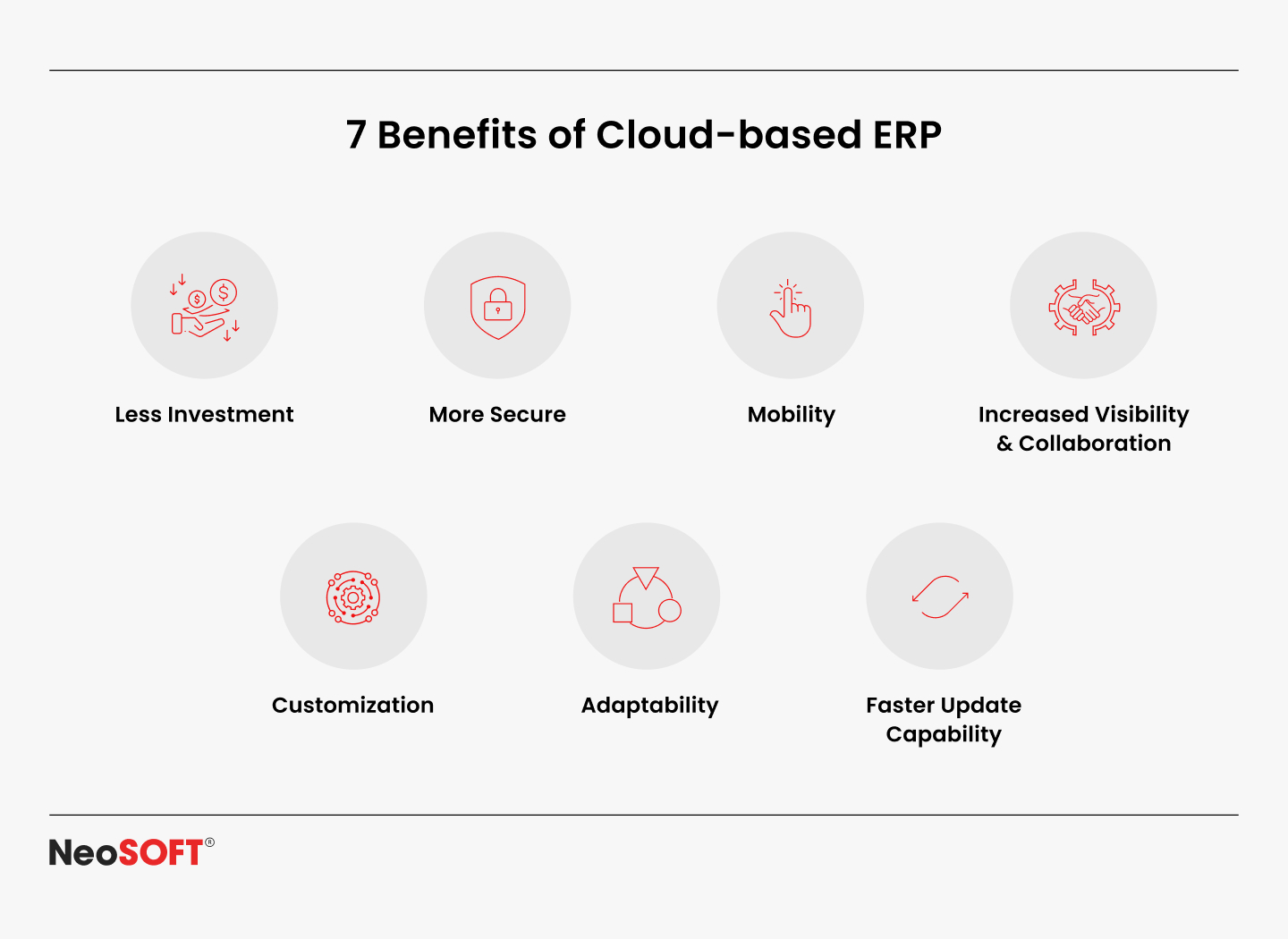
Cloud ERP systems offer more than digital tools; they deliver measurable business outcomes that are vital for modern manufacturers.
Accelerated Time-to-Value
These systems implement quickly in comparison to conventional on-premise ERP, enabling manufacturers to realize ROI sooner. Ready-made manufacturing components reduce setup time, helping organizations optimize production, supply chain, and inventory processes.
This quick implementation minimizes disturbance and speeds up the digital transformation process by enabling quicker optimization spanning fabrication, distribution system, and inventory activities.
Stronger Cross-Department Collaboration
A modernized cloud ERP for manufacturing synchronizes the activities of the departments of sales, finance, production, purchasing products, and human resources while centrally storing business-critical data. By removing data silos and guaranteeing constant real-time information availability, this connection lowers the possibility of misunderstandings and operational delays.
Shop floor systems and inventory control are illustrations of connected modules that teams can utilize to proactively address problems while preserving production schedules. Alongside enhancing company operations, this degree of synergy fortifies the groundwork for scalable expansion.
Strategic Decision-Making with Real-Time Insights
They enable manufacturers to have the advantage of collecting manufacturing data in real-time, which helps them remain ahead of the competition. Live dashboards and extensive business intelligence capabilities offer real-time insight into management of supply chains, demand trends, stock levels, planning, and financial performance.
They also do effective raw material management, good production scheduling, and accurate demand forecasting. Furthermore, real-time analytics improve quality control planning and throughput, enabling administration to make decisions based on data that increase operational efficiency and profitability.
Among the key business functions that can be coordinated with a modern manufacturing ERP system are financial management, inventory control, and manufacturing process strategy. This departmental real-time connectivity improves response, expedites distribution chain management, and increases visibility.
Reduced Total Cost of Ownership (TCO)
Standard on-premises accounting software packages necessitate a substantial upfront investment in equipment, infrastructure, and ongoing IT support. On the other hand, by removing these capital costs using the adoption of Software as a Service (SaaS), cloud-based ERP software offers a more flexible and cost-effective method.
Manufacturers gain from lower costs and easier system maintenance through standardized pricing, ongoing software upgrades, and integrated service management. For tiny and mid-sized manufacturers looking to grow without raising their IT expenses, this approach proves extremely beneficial.
Enhanced Customer Responsiveness
In today’s manufacturing industry, promptness and transparency are critical to customer growth and retention. A cloud ERP system gives businesses rapid access to order history, levels of stock, and delivery schedules, enabling them to precisely fulfill orders and answer consumer inquiries.
ERP software ensures that urgent requests for custom arrangements, and order adjustments are promptly shared across departments, bringing manufacturing operations and marketing management into alignment. This is especially crucial in situations like customized and process manufacturing, where client demands constantly vary.
Using computerized processes and current information from supply chain, inventory management, and factory execution systems, enterprises could boost delivery accuracy, minimize errors, and offer consistent service. This will promote enduring relationships and increase customer loyalty.
Role in Enabling Smart Manufacturing
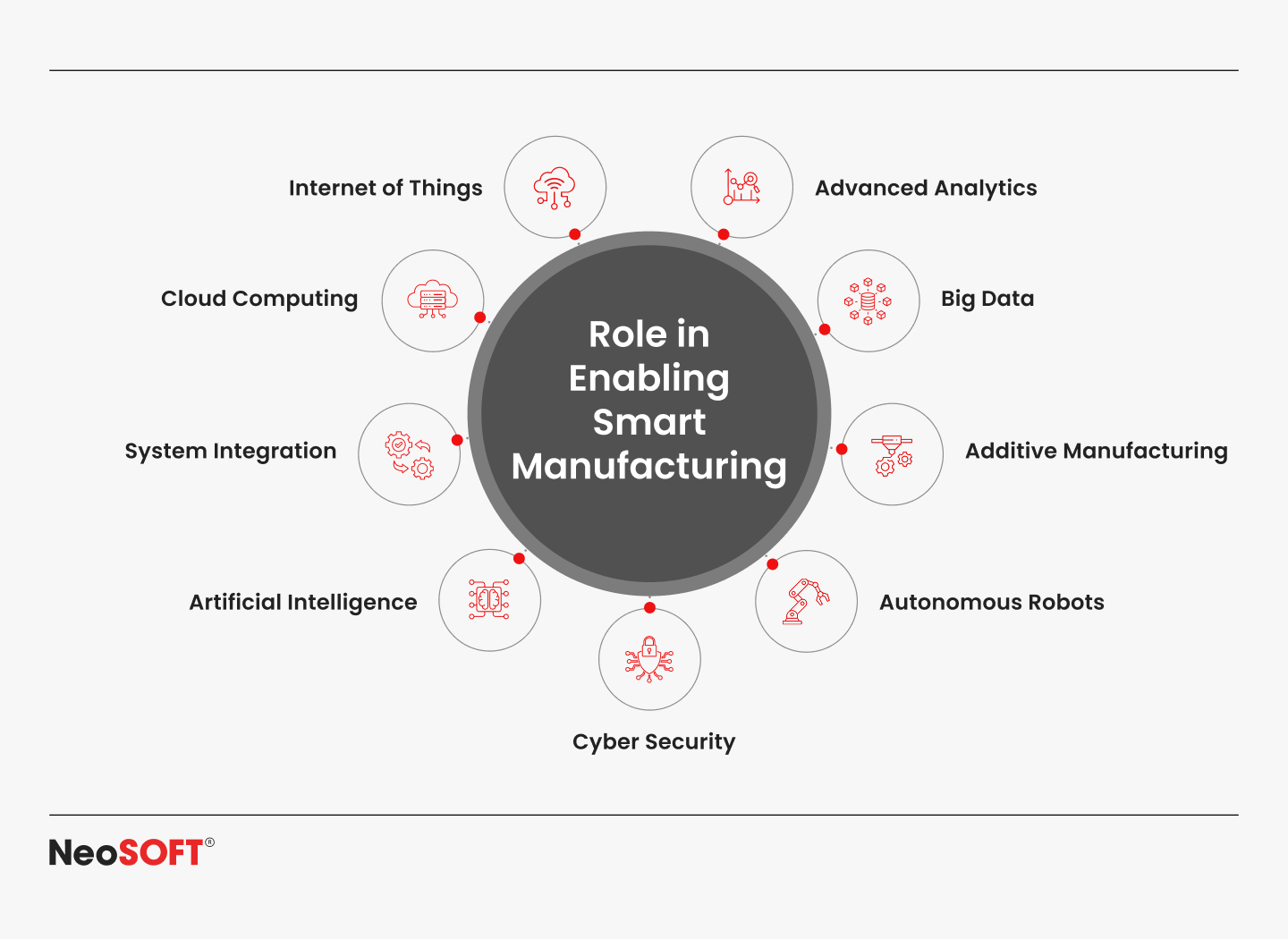
Key contributions include:
- Enhanced shop floor operations through the use of linked devices to monitor stock, equipment well-being, and production processes in real time.
- Predictive maintenance, rendered possible by AI and advanced analytics, reduces downtime and improves the efficiency of machinery.
- Visibility is provided by from beginning to end PLM (product lifecycle management) integration, which links design, production, and delivery.
- Traceability and quality management, which guarantee visibility and compliance in both continuous and process production environments.
With constant surveillance and predictive analytics, cloud ERP helps companies in today’s interconnected manufacturing sector develop more quickly, adjust to market changes, and ensure long-term operational resilience.
Common Challenges and Solutions
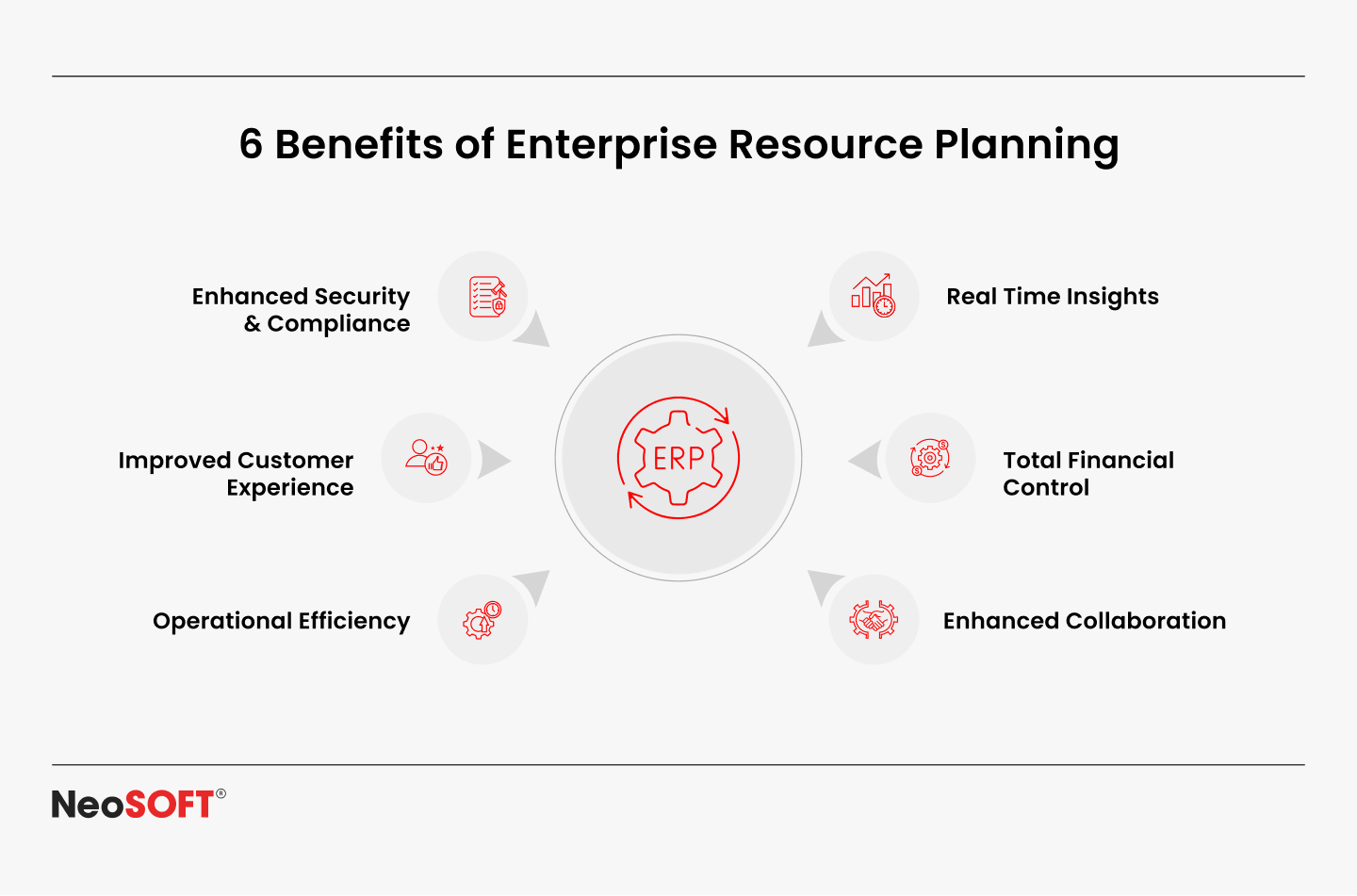
Cloud-based ERP systems have a lot to offer the manufacturing industry, but there could be a lot of challenges to overcome when using them. Early detection helps industrial companies plan for success and avoid disruptions.
1. Data Migration from Legacy Systems
Large volumes of vital operational data, like financial information, production history, and inventory records, must be moved when switching from an outdated, on-site enterprise resource planning system to an updated cloud-based ERP solution. After deployment, operational problems may arise from incomplete data.
Solution:
Engage with seasoned ERP suppliers to clean, map, and authenticate data. A phased migration program ensures company continuity and reduces downtime in critical production and supply chain operations.
2. User Adoption & Change Management
Manufacturing, economics, procurement, and sales teams’ daily activities are impacted when a new industrial ERP system is implemented. ROI might be delayed by a lack of familiarity or resistance to change.
Solution:
Give pilot rollouts, transparent communication, and organized staff training top priority. To facilitate onboarding for manufacturing operations, handling materials, and quality management, select ERP software with an easy-to-use interface and robust support.
3. Customization Constraints
Several SaaS ERP programs might not completely satisfy specialized needs in process or discrete manufacturing. Support for special processes or production-specific requirements may be impeded by a lack of customization.
Solution:
Choose modular ERP solutions tailored to your industry. Popular cloud ERP platforms for manufacturing provide characteristics that may be customized to meet different demands in inventory control, production planning, and project management.
4. Security & Compliance Risks
Concerns about cybersecurity, privacy of information, and regulatory compliance are legitimate when it comes to cloud deployment, particularly for sectors that handle important operations or financial data.
Solution:
Employ ERP suppliers offering enterprise-grade security, encryption, and audit trails. Verify that the solution conforms with local, national, and international manufacturing rules, particularly those pertaining to financial management and the processing of employment data.
However if businesses choose to work with an appropriate partner they can easily switch to a cutting-edge manufacturing ERP system that boosts agility, lowers expenses, and fosters innovation without sacrificing security or productivity.
How to Choose the Right Cloud ERP for Your Manufacturing Needs
Selecting the top stored in the cloud accounting software for manufacturing is crucial if you want to upgrade your business’s procedures and remain competitive. Here is what needs to be assessed:
- Deployment Models- Employ a hybrid ERP solution that combines premises and cloud-based programs for a flexible rollout if a full cloud transition is not practical.
- Integration Needs- For smooth production processes and data flow, make sure the ERP system connects readily with your current CRM, MES, HR, and product lifecycle management technologies.
- Customization & Fit- Choose production-specific ERP platforms that can adapt to your project management, inventory control, and quality control specifications, whether they are discrete or process-driven.
- Vendor Reputation- Select dependable ERP suppliers with solid support, scalability, and a track record of success in the manufacturing sector, such as Microsoft Dynamics.
Conclusion
The solution for the next stage of business resource planning lies in intelligent, adaptable, and fully integrated platforms made for modern industrial businesses. The development of ERP Software as a Service (ERPaaS) has made it possible for manufacturers to use flexible pay-as-you-go models that reduce upfront costs while adapting shifting operational requirements.
In addition, the incorporation of AI-powered ERP capabilities enables more intelligent decision-making in areas such as inventory control, accounting, sales forecasting, and materials management, all of which are critical for thriving in the present competitive landscape.
Cloud ERP makes sure manufacturers have plans for future issues by improving outdated tools, improving responsiveness, and making better judgments. Maintaining operational excellence requires a strong ERP solution as customer demands rise and production processes get more intricate.
Cloud ERP is not merely a choice; it is a must if you are prepared to make your operations more future-proof and create an integrated, scalable, and intelligent company. Contact us at [email protected] to learn more about how our customized ERP solutions can revolutionize your manufacturing operations. Let our expert developers assist you in enhancing procedures, innovate effectively, and scale with consistency.











